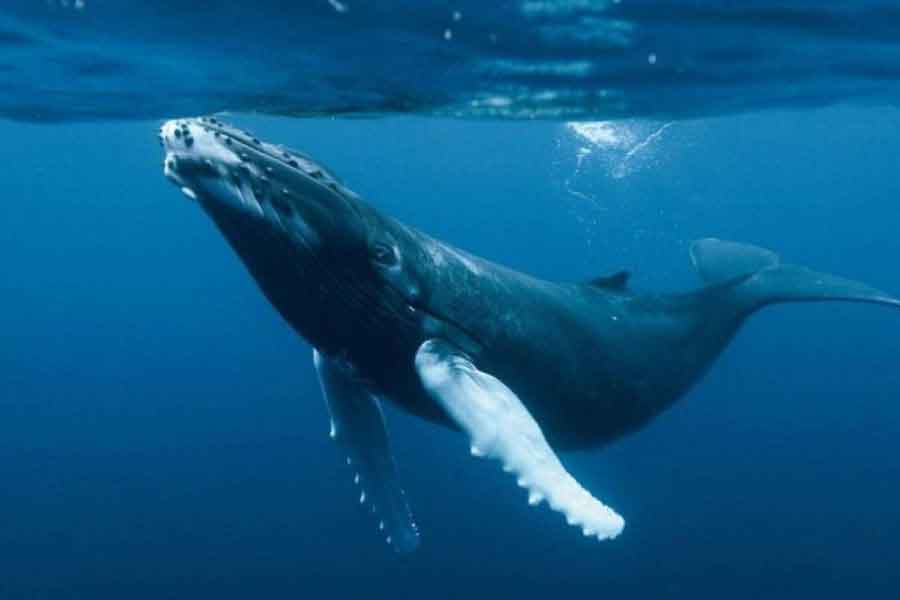
The largest recorded blue whale measured 33 meters long, the length of three railroad cars, and had a staggering weight of 190,000 kilograms, equivalent to the weight of 32 African elephants or 2,400 men. It is six times larger than the largest dinosaur that ever roamed the planet. Its heart weighs 2,000 kilograms, about the size of a small car, and pumps 230 liters of blood per beat, amounting to a total of 15,100 liters of blood in its entire circulatory system. A person could comfortably crawl inside its aorta. Its brain weighs a mere 19 kilograms, which is only 0.01% of its body weight.
During feeding periods, a blue whale will consume approximately 4,000 kilograms of krill per day, equivalent to around 40 million individual krill. When born, blue whale calves weigh around 2,500 kilograms and consume 190 liters of milk daily, gaining nearly four kilograms per hour or approximately 96 kilograms per day. They are undoubtedly the largest babies in creation. By the time they reach eight months of age and begin weaning, they can measure 15 meters in length and weigh about 22,700 kilograms.
One might believe that they are robust and plump animals. In reality, that is the image we have of captured or beached whales, swollen due to decomposition. Blue whales are actually very streamlined and graceful animals when swimming. They move through the water with astonishing slowness and control over their bodies. Due to their immense size and weight, they were not hunted during the 19th century because whalers at the time found it impossible to hoist the carcasses, which sank into the sea once dead. However, the arrival of steamships and winches marked their extermination with bloodshed. From 1930 to 1960, they were mercilessly hunted in all the seas of the Earth, leading to a decline in their population to just ten percent of the original number by the end of the 20th century.
Today, these gentle giants are only victims of Japan’s «scientific whaling.» As you read this article, a blue whale is enduring solitude in the waters of the Antarctic, carrying an enormous calf in its womb that will soon emerge into the world. Perhaps one day, we will be able to witness it swimming freely and peacefully, protected and cared for by all the countries of the world.
Only then will we have demonstrated that human beings belong to an intelligent race.
«You cannot defend what you do not love, and you cannot love what you do not know.»

